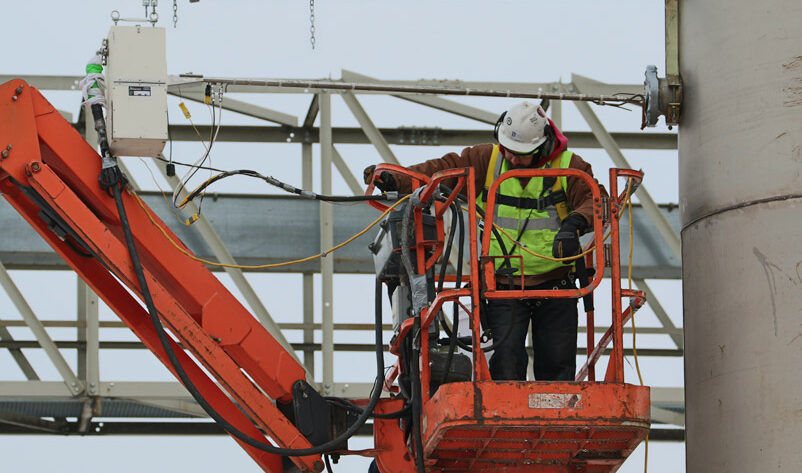EN 14789 Greenhouse Gas Emissions Test
The EN 14789 standard is a European normative document that specifies methods for quantifying greenhouse gas (GHG) emissions from various industrial and commercial operations. This service plays a pivotal role in ensuring compliance with environmental regulations, particularly in sectors like oil & gas where minimizing GHG emissions is critical.
The test involves the measurement of CO2, CH4, N2O, and other trace gases under controlled laboratory conditions using advanced analytical instrumentation such as Fourier Transform Infrared Spectroscopy (FTIR) and Gas Chromatography-Mass Spectrometry (GC-MS). The process begins with the collection of a gas sample from the emission source. This can be done via sampling ports or flares, depending on the specific requirements of the industry.
Once collected, the samples are analyzed in our state-of-the-art laboratory environment to ensure accuracy and reliability. Our team of experts ensures that all tests follow the stringent procedures outlined in EN 14789:2003, which includes considerations for both direct and indirect emissions from industrial processes.
The results are then reported back to clients with detailed breakdowns of each component gas detected, along with an overall emission profile. This information is crucial for identifying areas where improvements can be made in operational efficiency or for compliance purposes. For instance, oil & gas companies use this data to monitor flaring activities and optimize their processes to reduce unnecessary emissions.
Our services extend beyond just testing; we also offer recommendations for reducing emissions based on our findings. This could include optimizing burner operations, improving insulation, or implementing new technologies that minimize fuel consumption during combustion processes.
The importance of this service cannot be overstated given the global focus on climate change mitigation efforts. By providing accurate and reliable GHG emission data, we contribute significantly to the sustainability goals set by international bodies like the United Nations Framework Convention on Climate Change (UNFCCC).
Benefits
By engaging our EN 14789 Greenhouse Gas Emissions Test service, you gain several key advantages:
- Regulatory Compliance: Ensure that your operations meet all relevant environmental regulations and standards.
- Data Accuracy: Receive precise measurements of greenhouse gas emissions, enabling informed decision-making.
- Operational Efficiency: Identify inefficiencies in your processes through detailed emission profiles.
- Environmental Impact Reduction: Implement strategies to minimize environmental impact and contribute positively to sustainability goals.
These benefits translate into cost savings, enhanced reputation among stakeholders, and a competitive edge in the market as businesses increasingly prioritize sustainability practices.
Environmental and Sustainability Contributions
The measurement of greenhouse gas emissions according to EN 14789 is not only about compliance; it’s also about making meaningful contributions towards environmental protection. By accurately quantifying these emissions, organizations can take proactive steps towards reducing their carbon footprint.
In the oil & gas sector, this service supports efforts to reduce flaring and venting of gases into the atmosphere. Flare stacks are often used for burning off excess gases during production processes, but they can also release significant amounts of CO2 if not managed properly. Through regular monitoring via EN 14789 tests, companies can identify opportunities to convert these emissions into useful products or capture them for reuse.
Additionally, this service helps in evaluating the performance of carbon capture technologies that are integral to achieving net-zero targets set by many governments and international bodies. Our testing ensures that these systems operate efficiently and effectively, thereby reducing overall GHG emissions from industrial activities.
Use Cases and Application Examples
- Oil & Gas Production: Monitoring emissions during drilling operations to prevent leaks and optimize resource use.
- Refining Processes: Analyzing flared gases to determine potential for reuse or conversion into alternative energy sources.
- Pipelines: Assessing the integrity of pipeline systems by measuring leak rates over time.
- Storage Facilities: Evaluating storage tanks and containment vessels for any leaks that could lead to increased emissions.
- Transportation: Measuring emissions from ships and other mobile equipment used within the industry.
In each of these scenarios, accurate measurement is essential. Our laboratory adheres strictly to EN 14789 standards to ensure that all measurements are consistent and comparable with international benchmarks. This consistency allows for better tracking of trends over time and facilitates comparisons between different facilities or industries.





